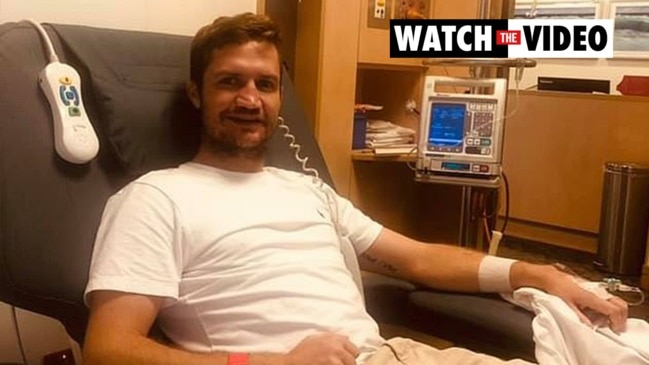Cancer breakthrough: $280m funding needed for molecular tests
The federal government is urged to fund a groundbreaking test which would see thousands of Australians avoid unnecessary cancer treatment.

NSW
Don't miss out on the headlines from NSW. Followed categories will be added to My News.
Thousands of Australians battling advanced and rare cancers would gain access to lifesaving medical trials and avoid unnecessary chemotherapy or radiation if the federal government invested $280 million in a groundbreaking test.
Over five years the funding would enable 80,000 Australians to have a molecular test to find treatment options for their aggressive cancers, and help an estimated 12,000 people get into a clinical trial, according to economic modelling commissioned by cancer researchers.
The investment in molecular testing would also help the government avoid $520m in healthcare costs by having a greater proportion of cancer patients participating in clinical trials.

In a pre-budget submission report obtained by The Daily Telegraph, Omico, which conducts molecular testing in Australia, has advised the government the $280m would also result in pharmaceutical companies investing $2 billion in local clinical trials, creating up to 2,750 direct and indirect jobs in the domestic genomics industry.
It would also drive down the cost of a test from about $10,000 on average through a private company, to as low as $4,000 if tests and analysis were conducted within in Australia.

Molecular tests check for certain genes and proteins in cancers and can tell a patient if chemotherapy and radiation is unlikely to work, as well as connect them to innovative new drugs more likely to effectively treat their specific cancer.
The Daily Telegraph has launched a campaign to improve access to molecular tests and innovative medicines for Australians with rare and advanced cancers as part of Alison Day’s wish.
The government has previously committed $50 million to Omico, but limited resources mean it can only help about one in 20 advanced stage cancer sufferers
Omico has helped match 1,500 people to treatments just two years into its five-year plan, which has extended the life expectancy of those patients by about 50 per cent, but chief executive David Thomas said they “need to do more”.
“For many of these patients, this their last hope of being offered a treatment option that could give them more time with their family,” he said.

Labor’s health spokesman Mark Butler said Health Minister Greg Hunt should follow through on his commitment in 2017 to make Australia a “world leader” in genomics research and personalised medicines.
“Four years on and there has been little action from the government,” he said.
“Australians deserve access to the range of exciting new treatments in a timely fashion.”
Susan Reilly was last year diagnosed with triple-negative breast cancer at the age of 45, five years after she started getting regular mammograms as her mother had died from the disease.
Ms Reilly, who has a 13-year-old daughter and two twin sons aged 11, went straight in to the “standard” 16 rounds of chemotherapy and radiation, followed by a double mastectomy.
“At surgery time, they told me not everything had been killed, I still had a tumour and it was IDC, the worst type,” she said.
“It breaks me, my kids deserve to have a mum.”

Ms Reilly finished radiation in January and is now on six months of xeloda, a tablet chemotherapy, but she has “no idea” if any of it is working.
Ms Reilly said she had “never heard” of molecular testing and “can’t believe” it wasn’t an automatic option for patients like her.
“I only learned about it through the (Daily Telegraph) and even then there’s just no way I could afford that,” she said.
“Chemo worked to a point for me, but then what did I do wrong, maybe the molecular testing could tell me.”
Ms Reilly said she was “doing what I’m told and hoping for the best”.
Asked why more molecular testing wasn’t funded, a Health Department spokesman said the new technology must assessed by the Medical Services Advisory Committee for its “comparative safety, clinical effectiveness, cost-effectiveness, and total cost, using the best available evidence”.
They said last year the government listed 20 new tests under Medicare for “selected cancers” to ensure that Australians had access to “high quality and appropriate health care”.




